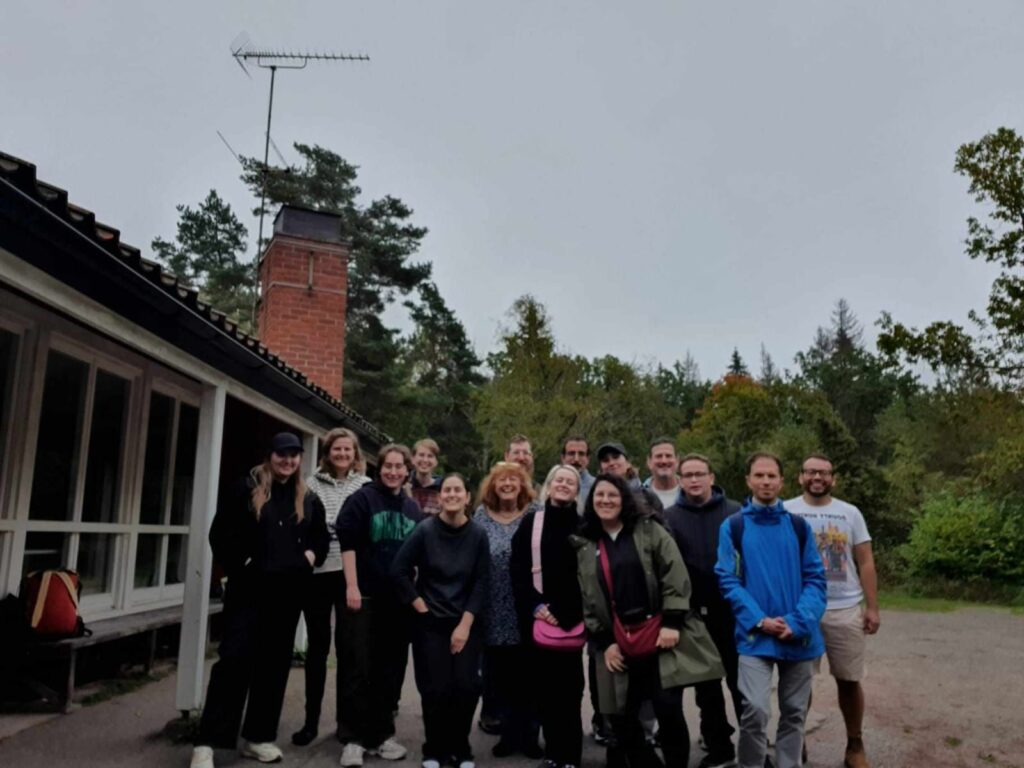The experience of JPII Leader Lidiia Batig in Sweden at Paideia
Lidiia Batig (Cohort VIII, Ukraine) is a very active JPII Leader who run over the past few years many JPII Leader Projects thanks to the grants received through the JPII Center. She developed many initiatives such as the School of Interreligious Journalism which received the prestigious “Intercultural Achievement Award 2018” from the Ministry of Foreign Affairs of the Republic of Austria (read more here). More recently she concluded in Rome the successful interreligious Conference “Love as a Commitment”. You can read about all her projects through JPII Center grants here.
Here Lidiia shares about her latest semester in Stockholm where she had the chance of being a student at PAIDEIA. “Founded in 2000 through generous grants from the Swedish government and the Marianne and Marcus Wallenberg Foundation – Lidiia explains – Paideia serves as an academic and applied institute of excellence with a specific mandate. Its primary objectives include nurturing the renewal of European Jewish culture, promoting cross-cultural dialogue, and advocating for a positive paradigm of minority culture within European societies.”
The goals of this institution as well as the possibility “of being in a Jewish environment and learning from esteemed professors” and the “integration of practical training into the program, linking academic studies with activism” were part of the reasons for Lidiia to apply to this program.
Just recently back from Sweden, Lidiia tells enthusiastically about the courses she attended: on the Hebrew Bible with Professor Yair Zakovitch, on Jewish Bible exegesis, Midrash and Aggada with Professor Marc Hirshman, on Jewish History with Dr. Meir Ben Shahar and Phil Lieberman and on Jewish-Muslim relations with Arnold Franklin.
“Beyond the academic realm, the camaraderie and shared celebrations in the Jewish environment were equally significant. The bonds formed during discussions and holiday festivities – Lidiia continues – enriched my experience, creating a sense of community within the academic setting. The inclusion of modern Hebrew in the curriculum added a contemporary dimension to the studies, bridging the gap between tradition and modernity.”
Lidiia was in Stockholm on October 7 and she explains how challenging that time was and continued to be: the increase in anti-Semitic incidents in Sweden, the tense atmosphere and the sense of apprehension which permeated the Jewish community led some of Lidiia’s Jewish friends to be reluctant to go out, fearing potential incidents. “Despite these challenges, what stood out the most was the resilience and unity within the Jewish community. Facing adversity, my friends rallied together, offering mutual support and creating a sense of collective strength,” she explains.
“Coming from Ukraine – Lidiia continues – a place where I have experienced the impact of war, I resonated deeply with the sentiments expressed by my Jewish friends. My brother is now at war in Ukraine, so I completely understand my Jewish friends […] My support extended not only to my Jewish friends but also to the broader nation of Israel. As someone with a firsthand understanding of the impact of tension, I shared in their hope for a victory, peaceful resolution, and stability in the region.” As part of the JPII Leaders Network, Lidiia was among the most active and vocal members who worked on the statement about the current crisis that the JPII Center with its Network issued in November.
Looking back in time, Lidiia reflected as well on how the Russell Berrie Fellowship prepared her for this program since it provided her with “a strong grounding in interfaith dialogue, expanding my horizons and kindling a fervour for understanding diverse cultures. What set the Russell Berrie Fellowship apart was not just the informative courses but the exceptional teachers who shared their profound knowledge. These experiences not only broadened my understanding of various faith traditions but also equipped me with the skills needed for meaningful interfaith conversations.”
For Lidiia, a life changing meeting was the one with Rabbi Jack Bemporad, the founder of the John Paul II Center for Interreligious Dialogue. “Despite my difficulties, Rabbi Jack’s steadfast belief in my potential became the bedrock of my resilience. His great support during times of doubt and hardship was a beacon that guided me through the intricacies of academic pursuit. It is through his mentorship that I discovered a deep and abiding love for Judaism, the Jewish people, and the profound realms of Jewish philosophy, life, culture, and theology,” she gratefully continues.
Now Lidiia is back to Rome where she is planning to embark on a Ph.D. research journey focused on “The challenges of modern Jewish-Christian marriage: Biblical examples on building spousal intimacy,” examining narratives like Esther and Ahasuerus, Ruth and Boaz, Bathsheba and David, at the Pontifical Lateran University’s John Paul II Pontifical Institute for Marriage and Family Sciences.
“It is my sincere hope that through my work, I can contribute to preventing instances of anti-Judaism and anti-Semitism in the future. By promoting the richness of Judeo-Christian heritage, I aim to foster a greater understanding that transcends religious boundaries,” she concludes.

